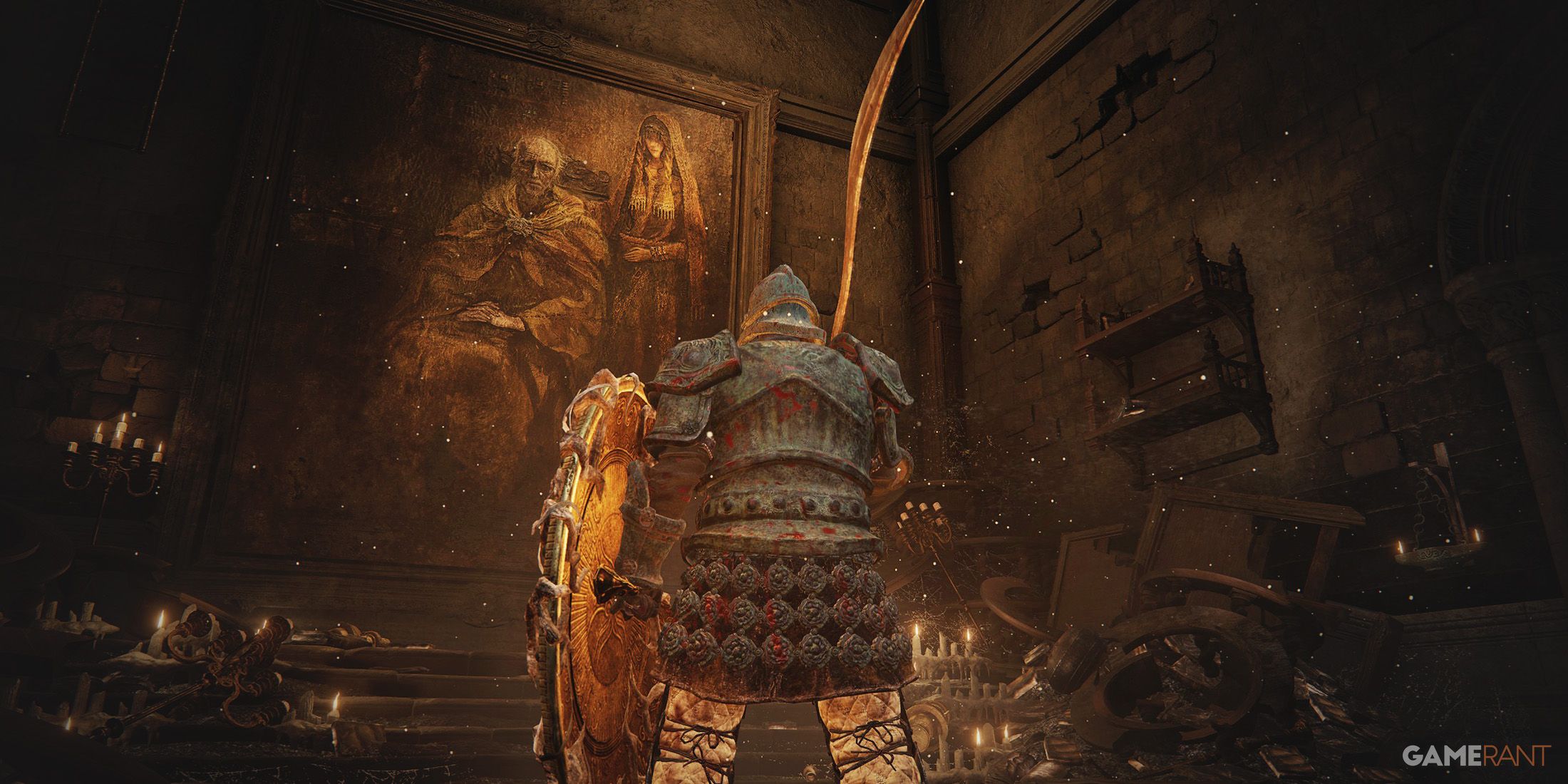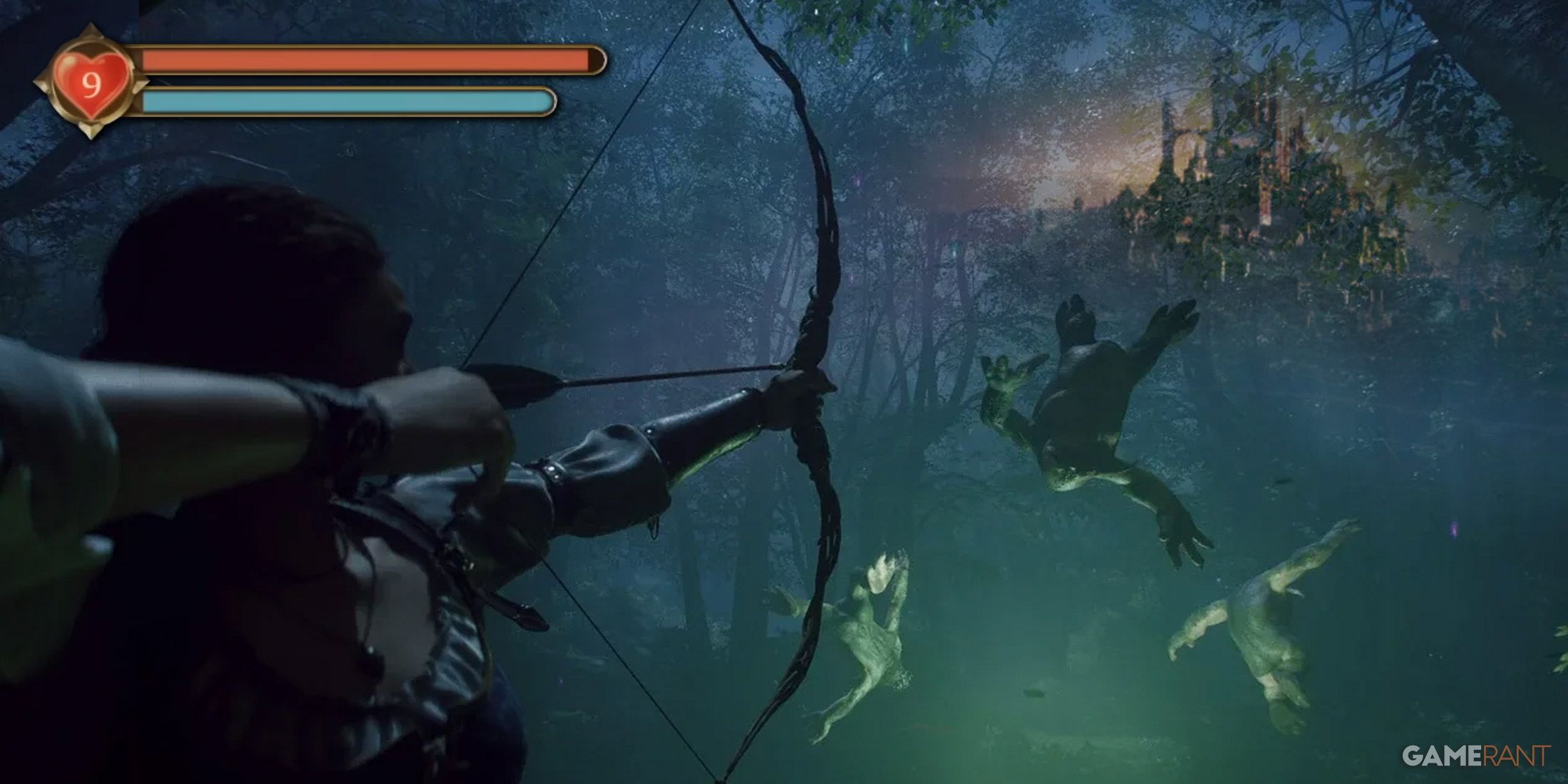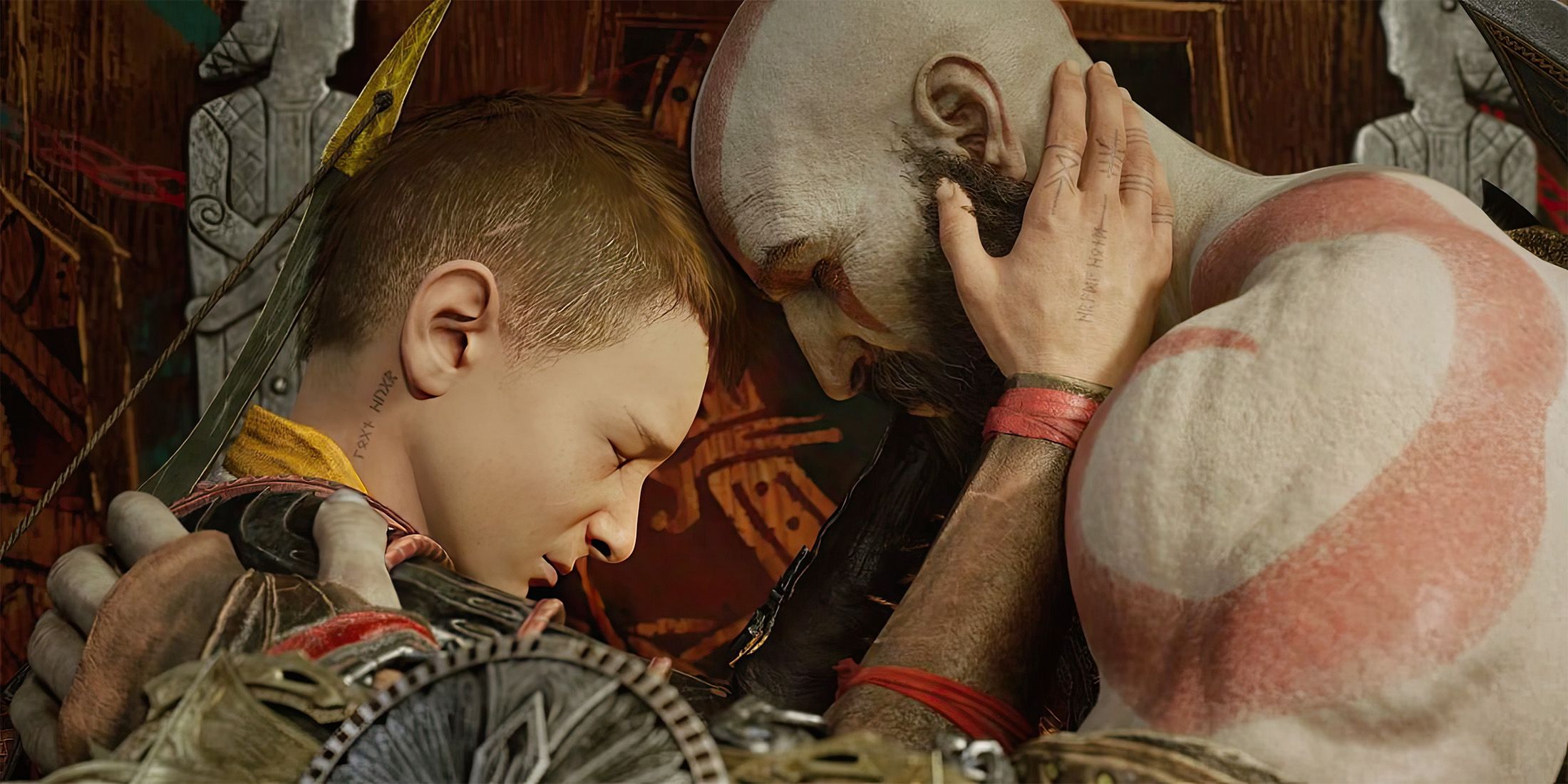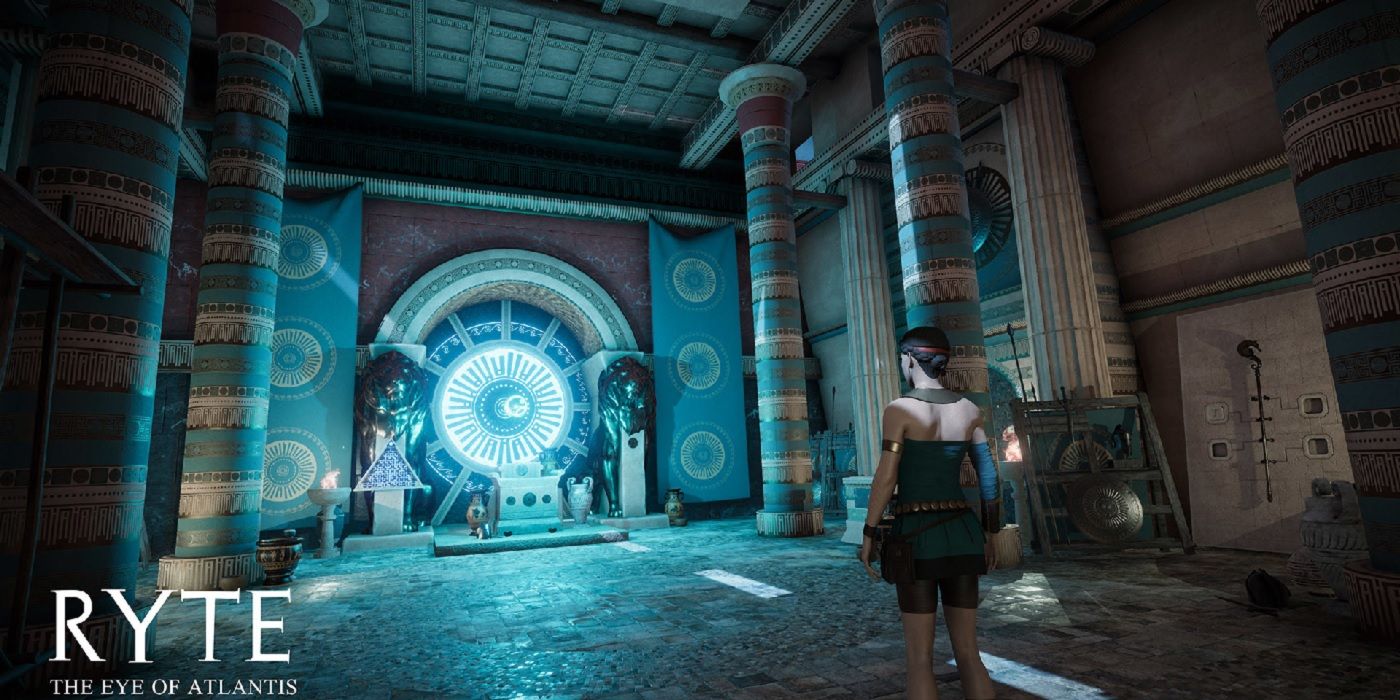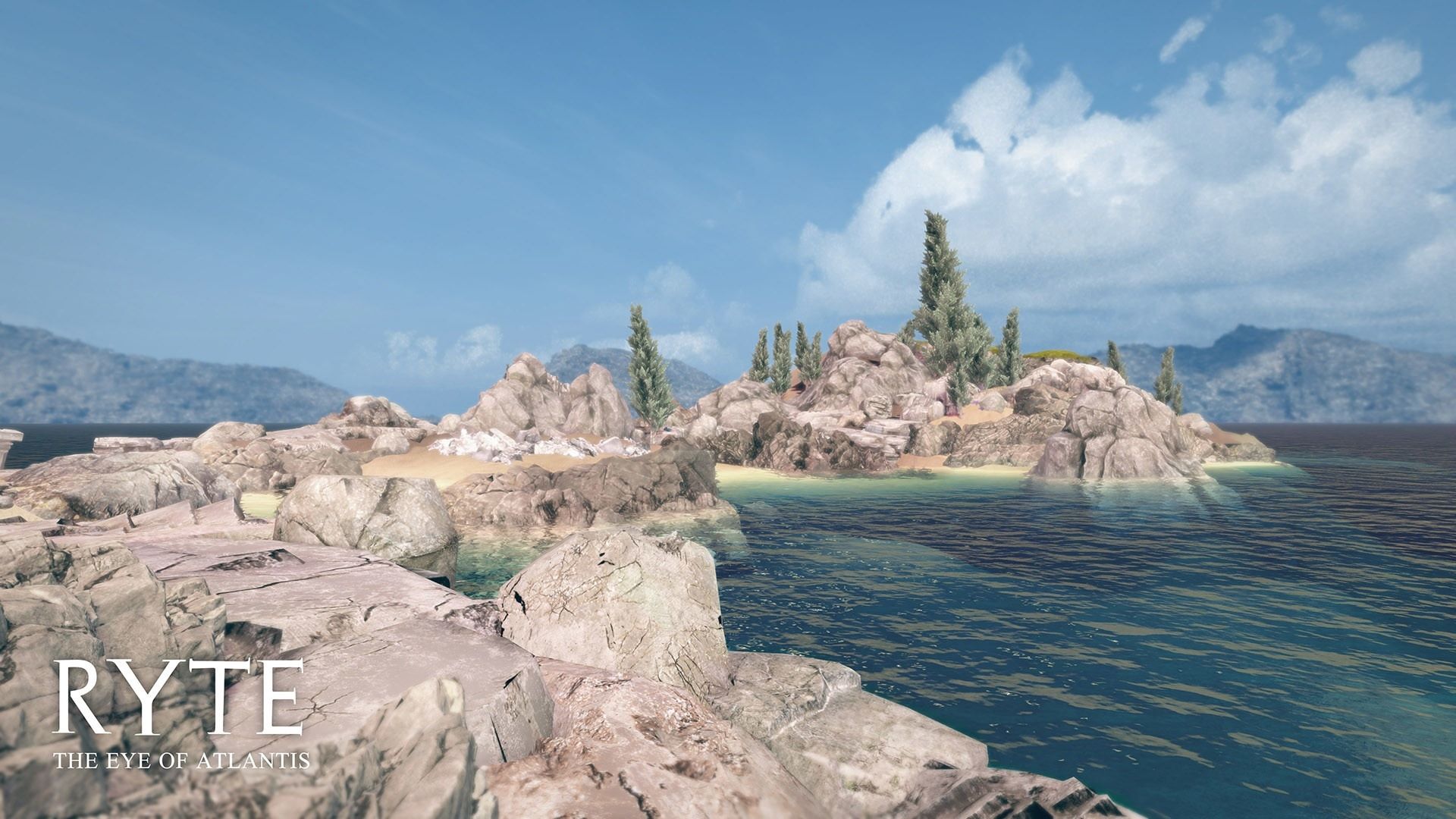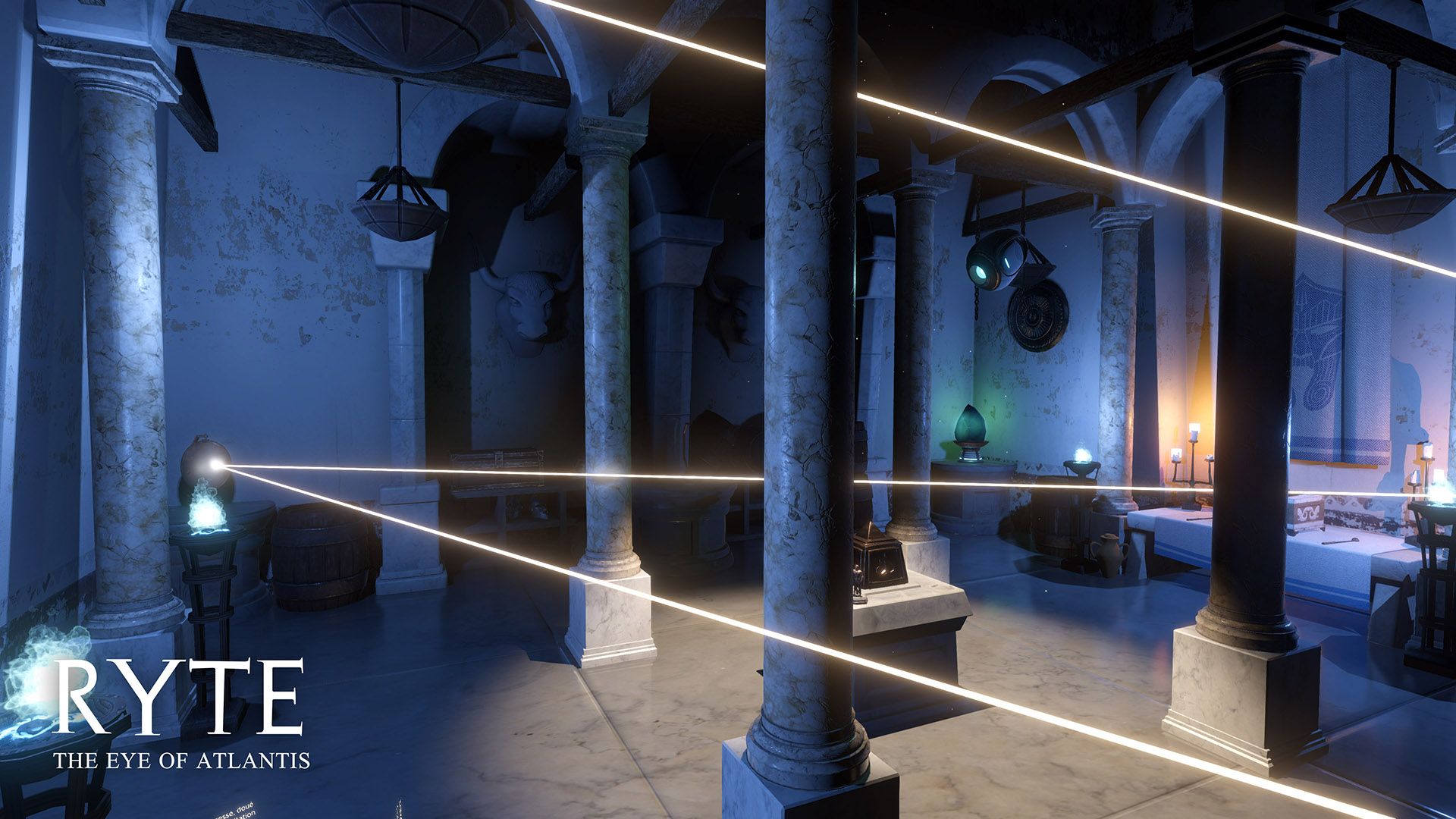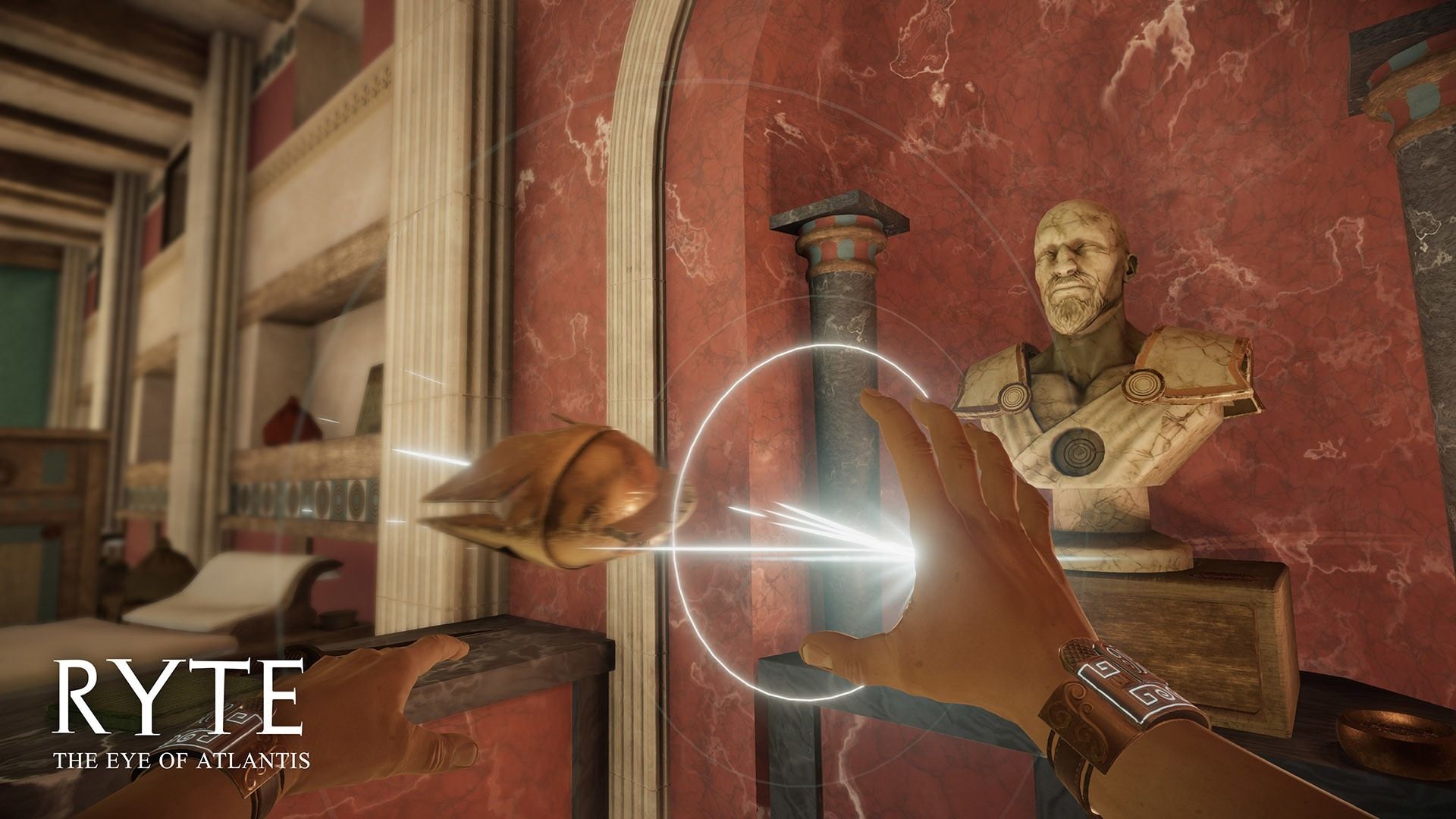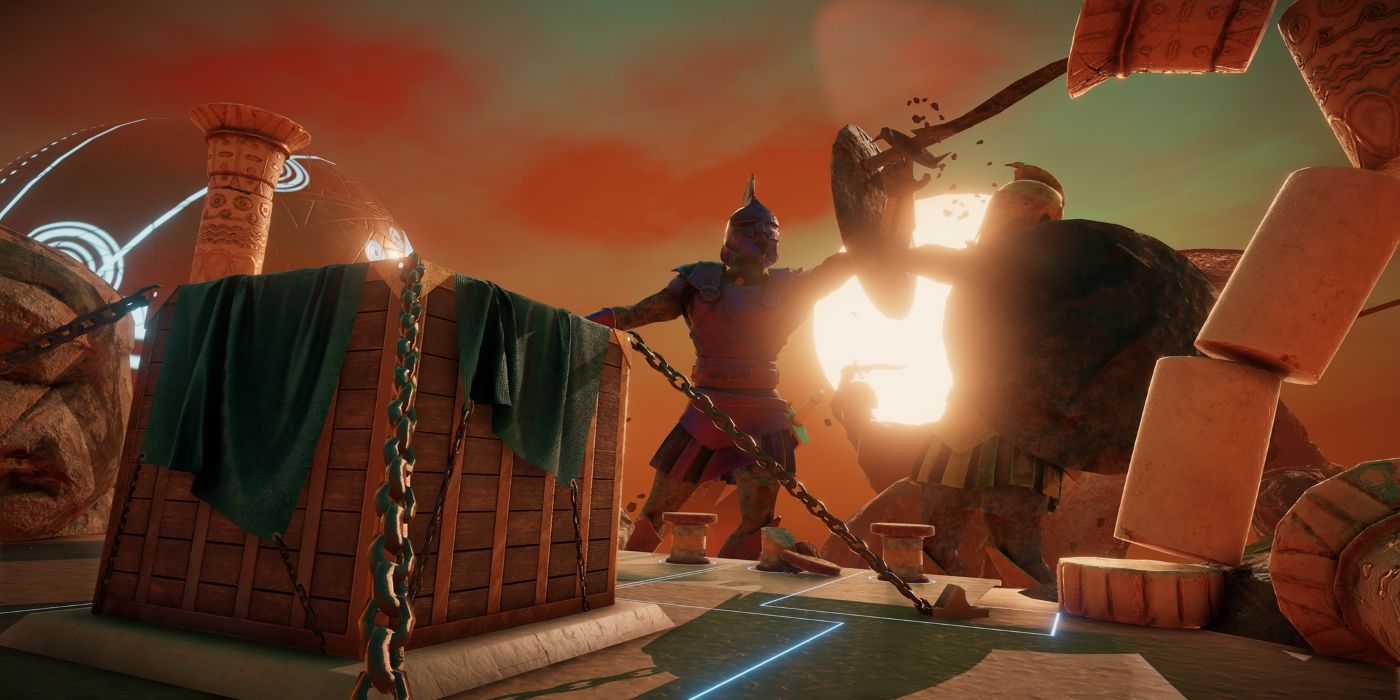Ryte: The Eye of Atlantis is one of the first new Oculus Rift releases of 2021, but unfortunately, it doesn't get the year off to a great start. Ryte: The Eye of Atlantis is a first-person puzzle game that only gives players a brief prologue and two chapters to complete, though its incredibly short length is the least of its problems.
The majority of VR games are not as long or fully-featured as standard PC and console games, but they tend to make up for that lack of content with a heightened sense of immersion. While players might not get 50+ hours of gameplay out of a VR game, the trade-off is getting a genuinely unique experience that can't be replicated with a traditional setup. Ryte: The Eye of Atlantis makes it impossible to get properly immersed in the game thanks to some graphical oddities and audio issues that will suck players right out of the experience.
One of the most immersion-breaking situations in Ryte is whenever players come across a human NPC. In Chapter 2, a woman named Danae starts following the player around, but nothing she does makes her feel human in the slightest. Her jogging animation is awkward and unintentionally hilarious, while her facial animations are wooden and at least a decade behind the times. The human NPCs are somewhat reminiscent of those in older Bethesda games, though for reference's sake, the Ryte animations are a step below The Elder Scrolls 4: Oblivion - and that came out in 2006.
When players aren't laughing at the human NPCs, they'll be cringing at the voice acting. As if Danae's weird jogging wasn't enough to make her come across as one of the least-human NPCs ever conceived, the voice acting in the game drives that point home. No one in Ryte talks like a real person, with some odd enunciation choices and emotionless performances worsened by how excessively loud the characters are if players stand too close to them.
Luckily, Ryte: The Eye of Atlantis doesn't have too many NPCs that players encounter in the game, and only Danae sticks around for any extended period of time. Most of the experience is spent alone, exploring very restricted areas of Atlantis and solving puzzles. And while the NPCs look awful, at least the game world itself is pretty. The environments have a nice level of detail to them, with impressive lighting and an art style that perfectly matches the Ancient Greek vibe that the developers were going for.
It's a shame that exploring the Ryte world is such a restricted experience, with the game never realizing the promise of players going on a time traveling tourist trip to Atlantis. If it weren't for the supernatural Atlantean technology players acquire in the game, they really could be visiting any generic ancient Greece city, and it wouldn't make much difference to what they see. The game is essentially a bunch of disconnected escape rooms anyway, and so it never properly takes advantage of its potentially interesting setting.
While clearly inspired by classic puzzle game Myst, Ryte's puzzles are not nearly as difficult, and most players will likely breeze through the game. The only time that they may get stuck is if they can't find what they're looking for to solve the puzzle. For example, there is one puzzle in a forge where players have to use a slingshot to knock these big hammers free, but the slingshot is sitting on a box in a corner and there is no visual indication that it is any different than the other junk lying around the room. In these situations, players will eventually find themselves madly grabbing at whatever they can to make progress, and that does not make for a satisfying puzzle game.
Another frustrating puzzle happens a bit earlier in the game, where players have to adjust mirrors to aim a light beam around a room. This kind of puzzle has been featured in countless video games before, but it's never been this irritating. Despite having our hand clearly in front of us and on the mirror while adjusting it, the game constantly thought that we were instead reaching behind our back to pull out the suitcase that players use to lug items around the game world. After wrestling with this for awhile, the best option was to open the briefcase and let it hang in midair while we tried to make the minute adjustments to the mirrors to solve the puzzle.
Despite these hurdles, most of the puzzles in Ryte are fairly simple, and it's quite likely that most players will complete the game within a couple of hours as a result. There's even an achievement for beating it within an hour and 30 minutes, and with only two chapters, even players that get stuck will be able to make short work of Ryte: The Eye of Atlantis. There is some replay value in that players can go back through and make different choices at key points in the game, though that can lead to some other frustrations.
One choice players have to make in Ryte: The Eye of Atlantis requires them to either drop an item into a vortex or try to use it. Th game has players rooted in place, so they can't teleport closer to the vortex if that's the choice they want to make. Even while playing the game in a decent-sized room, it was a pain trying to get close enough to drop the item without moving out of our Oculus Rift S Guardian boundary. Players that run into this issue will have to pick the other option to make the game progress, even if that's not what they wanted to do.
There are some other instances in Ryte: The Eye of Atlantis where players will find themselves stuck in place with no way to move, and it's unfortunate that these sections have so little interactivity because they tend to be the more visually-impressive moments in the game. A couple of times while playing Ryte, players will find themselves standing on a balcony while a massive tidal wave is rushing towards them. There is a sense of awe as the tidal wave crashes down on the player, and it's a shame that the game doesn't have more of these moments that take proper advantage of the virtual reality technology.
There are a handful of other scenes similar to the tidal wave, and though they're not nearly as impressive, they still feel like a rewarding break from the monotony of the game itself. The only downside is when these visions happen too frequently in a level, a problem in Chapter 1, and so players are hit with one loading screen after the next, which certainly does not help the game's immersion-breaking problem.
But perhaps Ryte's biggest issue is its lack of options. Most VR games make it a point to give players multiple movement options so they can figure out what works best for them, but Ryte strictly sticks to VR teleportation. This can make positioning oneself properly in front of certain puzzles an unnecessary hassle, and to make matters worse, the game lets players teleport through walls and literally every other object in the environment. If players find themselves stuck in a wall, it will sound like they're underwater and oftentimes the game won't let players teleport out unless they physically lean their head back into the open air. The lack of movement options in a VR game was far more understandable when the technology first came out, but in 2021, it's a rather egregious oversight.
With a lack of movement options, poor character animations, some truly terrible voice work, and dull gameplay, Ryte: The Eye of Atlantis is something VR enthusiasts should skip. There are far better VR puzzle games available that are more deserving of one's time.
Ryte: The Eye of Atlantis is out now for PC and is compatible with HTC Vive and Oculus Rift headsets. Game ZXC reviewed the game on an Oculus Rift S.
Ryte: The Eye of Atlantis

